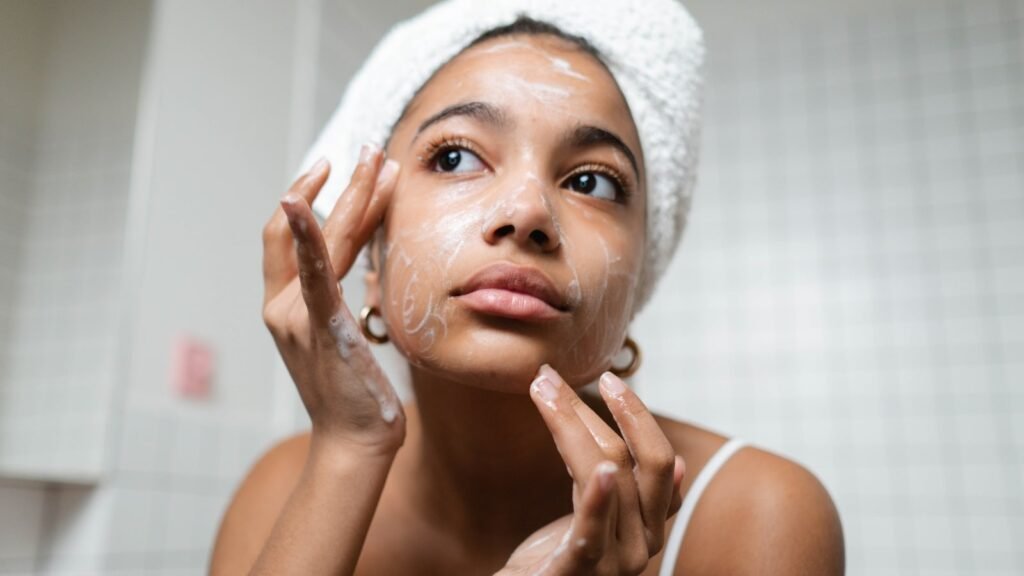Can Your Makeup Cause Skin Pigmentation? A Dermatologist’s Insight
Makeup has transcended generations, evolving from ancient kohl eyeliners to today’s advanced formulas. Whether it’s a captivating red lipstick or a soft nude gloss, cosmetics have undeniably become a vital part of our daily routines. However, amidst enhancing our looks, a growing concern has emerged: Does makeup contribute to skin pigmentation?
Understanding Skin Pigmentation: What You Need to Know
Skin pigmentation occurs when there is an excess of melanin production. Various factors can trigger this condition:
- Sun Exposure: UV rays remain the leading cause of pigmentation, especially in bright climates.
- Hormonal Changes: Fluctuations, often related to pregnancy or contraceptive use, can cause dark patches.
- Post-Inflammatory Changes: Previous acne or injuries may leave marks behind.
- Genetics: Some individuals are simply predisposed to pigmentation issues.
According to dermatologists, understanding these causes is the first step in preventing or managing pigmentation. Learn more about skin types and care here.
Can Makeup Trigger Skin Pigmentation?
While using makeup products like foundation or lipstick does not directly induce pigmentation, certain habits can exacerbate pre-existing skin conditions. For instance:
- Quality Matters: Low-quality or expired products may harbor irritants that trigger post-inflammatory hyperpigmentation.
- Heavy Formulations: Thick foundations can clog pores, leading to skin irritation.
- Prolonged Wear: Not removing makeup diligently increases the risk of skin issues.
Dermatologist Dr. Rinky Kapoor notes, “Using suitable products and skincare routines is crucial to preventing irritation and pigmentation.”
Ingredients to Choose Wisely
To minimize the risk of skin pigmentation caused by makeup, focus on ingredients:
- Avoid Fragrance: Artificial fragrances can provoke sensitive skin.
- Look Out for Mineral Oils: These can suffocate the skin, increasing breakouts.
- Always Opt for SPF: Products lacking sun protection leave skin vulnerable to UV damage.
Choose dermatologically tested and non-comedogenic makeup products. For insights on safe cosmetics, click here.
Natural Remedies and Lifestyle Changes
Here are some effective lifestyle modifications to combat skin pigmentation:
- Sunscreen Use: Make SPF a non-negotiable step in your skincare routine.
- Healthy Eating: Incorporate antioxidant-rich foods like fruits and vegetables.
- Stay Hydrated: Adequate water intake supports overall skin health.
- Stress Management: Practice mindfulness or yoga to reduce stress-induced pigmentation.
Dr. Kapoor recommends natural remedies like aloe vera and green tea. However, she cautions that these should complement, not replace, professional treatments.
Effective Solutions to Manage Skin Pigmentation
The most reliable methods for pigmentation treatment involve dermatologically-approved approaches, including:
- Topical Treatments: Look for agents like vitamin C, kojic acid, or retinoids.
- Professional Procedures: Options such as chemical peels and laser therapy can yield excellent results when performed correctly.
For comprehensive solutions to skincare, visit this dermatology guide.
Safe Makeup Practices for Healthy Skin
To prevent makeup-induced pigmentation, adopt these dermatologist-recommended practices:
- Invest in Quality Products: Prioritize trusted brands and look for “non-comedogenic” and “hypoallergenic” labels.
- Read Labels Carefully: Avoid products with parabens and high alcohol concentrations.
- Never Skip Sunscreen: Make SPF a part of your makeup routine to protect against UV damage.
- Thorough Removal: Implement double cleansing to ensure all makeup and impurities are washed away.
- Brush Hygiene: Clean your makeup tools regularly to avoid bacterial buildup.
- Patch Tests: Always conduct a test on a small area before using new products.
When to Consult a Dermatologist
If you experience persistent pigmentation, uneven skin tone, or irritation after using makeup, it’s time to consult a professional. A dermatologist can determine the root cause and recommend suitable treatments, including:
- Laser Therapy
- Chemical Peels
- Topical Creams (e.g., those containing niacinamide or hydroquinone)
Conclusion
Makeup itself does not directly cause skin pigmentation; instead, it is often a result of low-quality products, inadequate skincare practices, and prolonged sun exposure. By selecting quality cosmetics, ensuring proper skin hygiene, and protecting against UV damage, you can enjoy makeup without fear of pigmentation issues. Always remember, the foundation of stunning makeup is healthy skin.
For more tips on achieving healthy skin, check out this resource.


